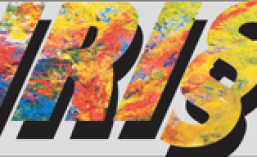
Internationales Rechtsinformatik Symposion IRIS 2015: 26.-28. Februar, Salzburg
Unser schriftlicher Beitrag (auf English): “Crowdsourcing and cooperative law-making”
von Dimitris Spiliotopoulos, Dimitris Koryzis, Fotis Fitsilis und Günther Schefbeck
«Is crowdsourcing the future for legislation?», Brian Heaton recently asked in an article focusing on experiments in the U.S. allowing citizens to propose and edit legislation online. In Europe, the Finnish crowdsourcing experiment in writing a new law on off-road traffic has gained much attention, both with regard to the legislative and the educative experiences. European projects like «+Spaces» and «wegov» have contributed to the theoretical and technical foundations of legislative crowdsourcing.
However, if crowdsourcing is defined as «an open call for anyone toparticipate in an online task» (Brabham), the traditional arguments against participatory democracy come into being again: in particular, the argument that those citizens ready to participate in a deliberative legislative process will not represent the «silent majority», so that participatory democracy may lead to distortions in the representation of societal interests. That is why the«non-moderated crowdsourcing» approach seems to be appropriate or even required to complement legislative crowdsourcing in the narrower sense: «non-moderated crowdsourcing» means systematic automatized listening to the discourses going on in civil society, in particular in the Social Networks of the Web 2.0.
European projects like «SocIos» and — with special regard to policy making — NOMAD have shown the high potential of exploiting the Social Networks. Thus, the conclusion has to be that, if crowdsourcing is the future for legislation, and there is some indication for this assumption, it will be a well assorted mix of crowdsourcing approaches that will make the best possible use of the «wisdom of the crowds» and will improve the participatory legitimization of legislation.
Discussed in Salzburg at the Workshop «Elektronische Rechtsetzung» on Saturday, 28. Februar 2015 / Website (Uni Wien)

Φώτη αν σε ενδιαφέρει, δες και το http://project.eucommunity.eu. με tools τα http://euractory.eucommunity.eu/ και http://policyline.eucommunity.eu/app/
Όπως και publication http://ceur-ws.org/Vol-1553/
Ευχαριστώ Μπάμπη, φαίνονται ωραία εργαλεία, θα τα μελετήσω προσεκτικά. Γενικά μας ενδιαφέρει ο τομέας αυτός. Για δες σε παρακαλώ και αντίστοιχη δημοσίευσή μας από το 2013: https://fitsilis.wordpress.com/2013/09/15/moderated-policy-discourse-vs-non-moderated-crowdsourcing-in-social-networks-a-comparative-approach/
Αλλά και φέτος θα έχουμε ένα paper στην IRIS 2016 με θέμα: Parliaments in the Digital Era – Innovation, Challenges, and Prospects